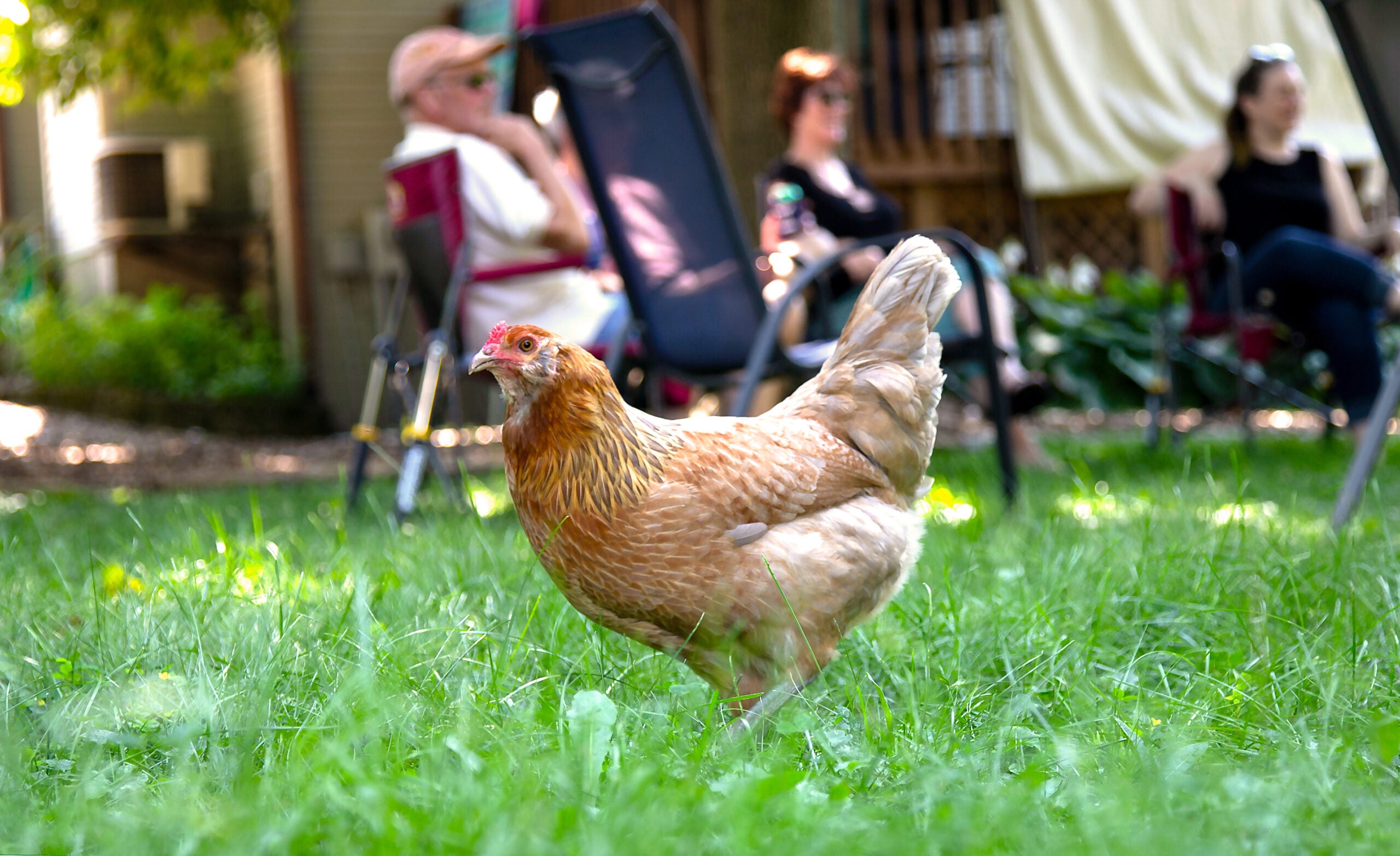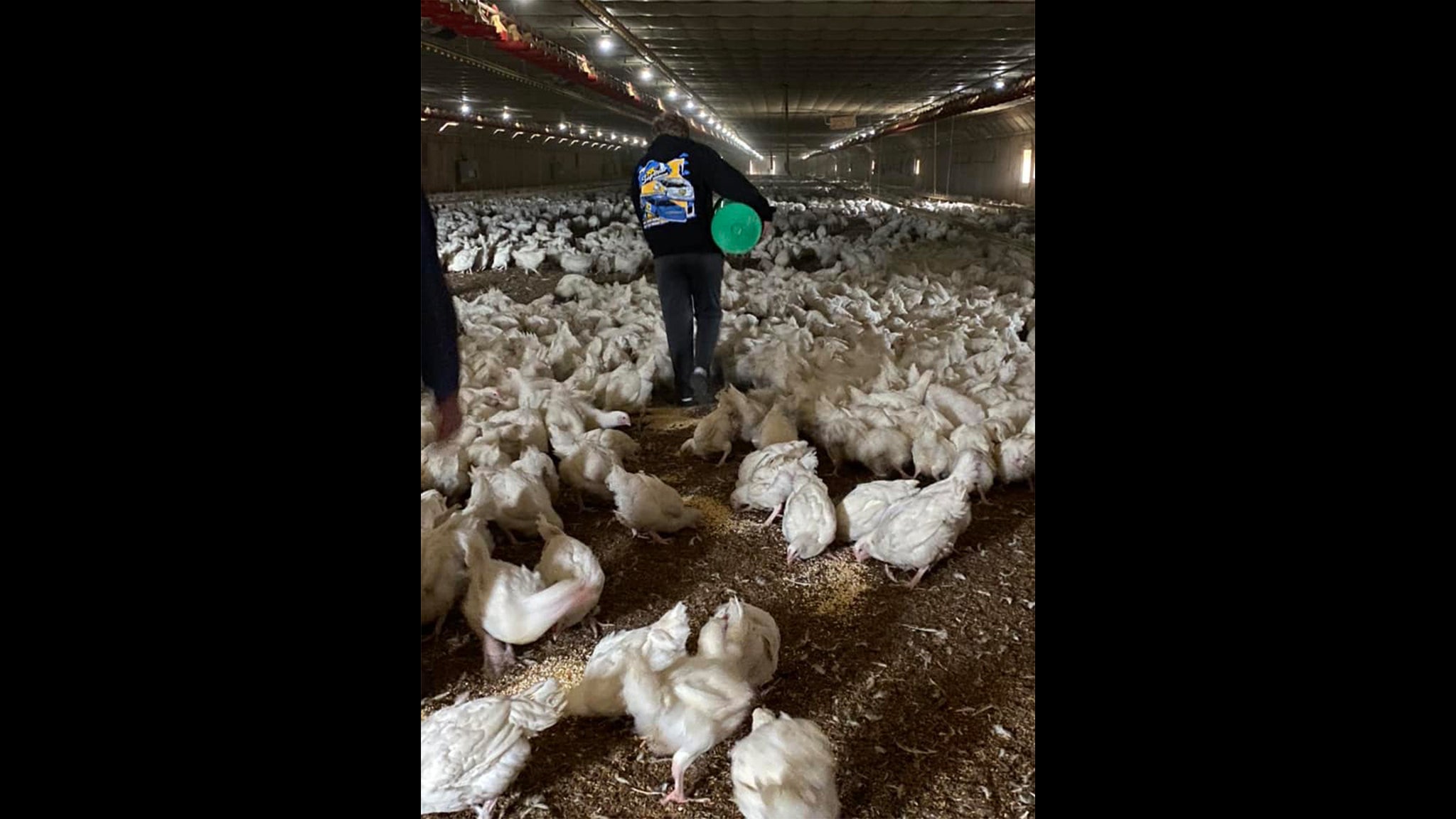Since 2011, Milwaukeeans have been allowed to keep backyard chickens.
The non-expiring permits to do so require a one-time application and a $35 permit fee.
Now, that application will allow people to self-declare economic hardship, waiving their permit fee.
News with a little more humanity
WPR’s “Wisconsin Today” newsletter keeps you connected to the state you love without feeling overwhelmed. No paywall. No agenda. No corporate filter.
Alder Peter Burgelis, who represents the city’s southwest side, sponsored the waiver amendment to Milwaukee’s chicken-keeping code. He said the idea came from a constituent who was upset about the fee.
“Some may dismiss a $35 fee as being 35 bucks, but for this family, that was impactful,” he said.
Burgelis said the city shouldn’t stand in the way of residents accessing healthy food.
“If people have a concern about the permit fee for the city of Milwaukee, that shouldn’t interfere, hinder or be an obstacle to providing fresh, healthy food for their families,” he said.
Permit fee discussed in committee
The 2011 legislation allowing chicken-keeping was sponsored by former Alder Nik Kovac. The rules allow residents to keep backyard coops with up to four hens with no roosters allowed.
“I honestly didn’t want there to be a fee, but I couldn’t get the votes without a fee,” he said at the committee hearing for Burgelis’ amendment. “Because I wanted to encourage this.”
He said you can calculate the cost of waiving permit fees, but chicken coops only depletes city money if “neighbors are complaining,” triggering an inspection by the Department of Neighborhood Services.
“Ideally, neighbors aren’t complaining because you’re giving them free eggs, and then it’s not a problem,” he said.
At the hearing, DNS Deputy Commissioner Mike Mazmanian said his department gets very few complaints about chickens.
Waiver chips away at fresh food access issue, says alder
Praising the nutritious value of eggs, Burgelis called the waiver a “small way that we can mitigate an impact of food deserts.”
He said a lack of grocery stores in some areas is a bigger concern.
Milwaukee has a fresh food access grant program, which has given money to sober living facility 4th Dimension Sobriety for garden beds and to urban farm Hundred Acre for a delivery van.
People in Milwaukee can also get a permit to plant seasonal gardens on vacant lots in their neighborhood.
Burgelis singled out an orchard at the Washington Park Urban Ecology Center as “one of the neatest” things he saw as a former county supervisor for that neighborhood.
“There are kids from the neighborhood picking apples, which I thought was really cool to see,” he said
“But why not?” he said. “The more access, the more different sources of fresh food that’s available to constituents, the better.”
According to the U.S. Bureau of Labor Statistics, the average dozen eggs in November 2024 cost $3.65. That’s up 45 percent from $2.52 at the beginning of the year, but below a January 2023 peak of $4.82.
The Associated Press reported in November that holiday demand and a new bird flu wave are driving up egg prices.
Wisconsin Public Radio, © Copyright 2025, Board of Regents of the University of Wisconsin System and Wisconsin Educational Communications Board.







